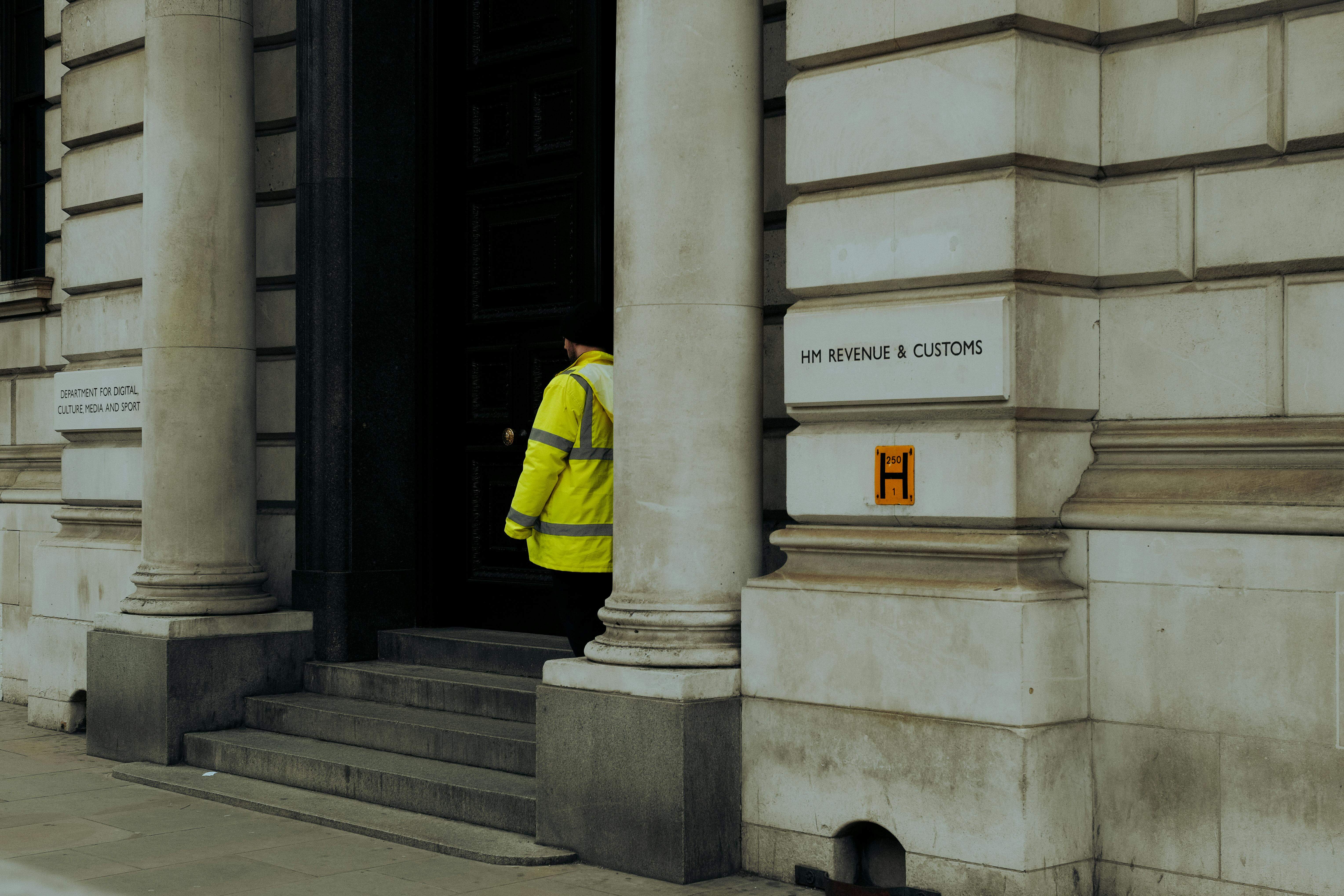When your company is behind on tax and facing financial pressure, it’s natural to worry about HMRC taking things further—especially when it comes to your personal position as a director.
Whether HMRC can make you personally bankrupt depends on your specific situation: how the debt came about, how you’ve responded, and how you’ve behaved as a director. The risks are real, but they can be managed if you act early and seek the right advice.
When could HMRC pursue you personally?
HMRC can only pursue a company director personally in specific scenarios, typically when there’s been misconduct, dishonesty, or outright fraud.
For example, if you’ve used a Bounce Back Loan for personal benefit or misrepresented the company’s status to obtain it, HMRC may argue that you acted dishonestly and hold you personally responsible. The same goes for unpaid VAT or PAYE where those funds were spent elsewhere, or for directors who continue to trade when they know the company is insolvent.
Another red flag is a pattern of opening and liquidating companies, a technique often used to dump debt in the old company and create a new one with the same people, staff, or premises. HMRC watches for these patterns closely and they are quick to act when they believe avoidance is at play.
Repeat non-payment, ignored correspondence, or failure to cooperate can also push HMRC toward issuing a bankruptcy petition. While this isn’t their first move, it’s not as rare as it used to be.
HMRC’s enforcement tools
If you’re receiving any of these warnings, now is the time to act. Ignoring them increases the chances HMRC will escalate:
Personal Liability Notices (PLNs): These allow HMRC to pin certain debts on directors personally when they believe the debt was incurred through wrongdoing.
Security deposits: If HMRC suspects ongoing non-payment, they may demand upfront tax deposits from the director.
Statutory demands and bankruptcy proceedings: The nuclear option but used if you ignore repeated contact, or if they believe the company is being used to abuse the tax system.
Early warning signs
Personal bankruptcy as a result of company debt doesn’t happen overnight. There are often clear warning signs that indicate HMRC may be preparing to take action. Here’s what to look out for:
- Letters from HMRC warning you personally about tax issues
- A statutory demand addressed to you as an individual
- A winding up petition naming you as a respondent
- Contact from the Insolvency Service asking about your conduct
These are serious indicators that HMRC is actively reviewing your case. Seeking professional advice at this stage is essential to minimise the risk of personal financial consequences.
What if I’ve already been contacted by HMRC?
If you’ve already heard from HMRC, whether through a demand letter, formal notice, or a request for information, it’s not too late. We can help. We’ll explain your options without judgement and help you make the smartest next move.
If you ignore correspondence or delay your response, HMRC is more likely to escalate matters. On the other hand, directors who respond quickly, provide accurate information, and show a willingness to cooperate are often able to negotiate more manageable outcomes.
Start by gathering all relevant paperwork: recent tax filings, correspondence with HMRC, director loan account balances, and any personal guarantees you’ve signed. This will allow your insolvency adviser to assess your position clearly and help you plan a strategy.
In some cases, a formal Time to Pay arrangement might be an option, especially if you engage early. If not, voluntary liquidation may allow you to draw a line under the current situation while reducing your personal exposure.
The key is not to panic…but not to procrastinate either. Once HMRC has you on their radar, inaction can be interpreted as avoidance—and that’s when things can get more serious. If you’ve been contacted, pick up the phone. We’re here to guide you through what happens next.
Can HMRC freeze my personal bank account?
Yes, but it’s not automatic. HMRC would typically need to apply for and be granted a court order, such as a third-party debt order or a charging order. This is a serious legal step and is more common in cases where fraud is suspected or where a director is seen to be obstructing recovery efforts: for example, moving personal assets, ignoring correspondence, or failing to engage.
If HMRC believes you are deliberately avoiding payment or concealing funds, they can act quickly to secure what they are owed. However, directors who maintain open lines of communication and cooperate in good faith are far less likely to face this kind of enforcement.
Could HMRC make me bankrupt?
Bankruptcy isn’t HMRC’s go-to enforcement route. But when they believe you’ve acted dishonestly, ignored repeated attempts to engage, or used avoidance tactics, they won’t hesitate to escalate.
HMRC can petition for your bankruptcy if:
- They’ve issued a statutory demand that hasn’t been satisfied
- They suspect you’ve siphoned funds or misused Bounce Back Loans
- You’ve repeatedly failed to respond to notices or cooperate with repayment discussions
- They believe your company was used to shield personal financial gain
If you’ve been warned personally, or if the Insolvency Service has contacted you about your conduct, you may already be on HMRC’s radar.
But in many cases, early and open engagement can stop HMRC from taking this route. A Time to Pay arrangement might still be an option. If not, other formal solutions may help you reduce the pressure without losing control.
Even if bankruptcy is the only remaining path, it’s not the end of the road. With the right support, you can protect your essential assets, rebuild your credit over time, and plan for a fresh start—free from legacy tax debt.
Could liquidation be the right solution?
If your company can’t pay its debts and there’s no viable way to recover, voluntary liquidation can be a positive, proactive decision.
While liquidation might feel like failure, it’s often the smartest route for directors under pressure—especially where HMRC is involved. A Creditors’ Voluntary Liquidation (CVL) helps you close the company in an orderly way, stay compliant with your legal duties, and reduce the risk of HMRC pursuing you personally.
Here’s how liquidation helps in HMRC situations:
- It shows you’re taking responsibility and not trying to dodge debts
- It puts creditor communication into the hands of a licensed insolvency practitioner
- It prevents further trading losses or misuse of restricted funds like VAT or PAYE
- It reduces the risk of being accused of wrongful or fraudulent trading
If you’ve built up debt that you now can’t pay, a CVL allows you to resolve these matters professionally, before HMRC takes unilateral action.
Can I be disqualified from being a director?
Director disqualification is a potential outcome following company insolvency, especially if the Insolvency Service determines that your actions contributed to the company’s financial failure.
Common reasons include: continuing to trade while insolvent, failing to file annual returns or accounts, accruing excessive tax debts, or failing to keep proper financial records. Disqualification periods can range from two to 15 years, depending on the severity of the misconduct.
But disqualification is not automatic. If you’ve acted responsibly, sought early advice, and done what you can to mitigate harm to creditors, it’s often avoidable.
Are Bounce Back Loans personally guaranteed?
No, Bounce Back Loans were issued without the need for a personal guarantee, meaning directors were not personally liable by default. These loans were 100% backed by the government to encourage lending during the pandemic.
However, personal liability can still arise if HMRC or a liquidator determines that the loan was misused. This includes applying for a Bounce Back Loan when the company was already insolvent, spending the funds on personal expenses, or transferring the money to other businesses or individuals without legitimate business justification.
Worried about being personally liable for company debt to HMRC?
The earlier you act, the more control you have. If pressure from HMRC is mounting, don’t wait to see what happens. We specialise in helping directors offload the stress, legalities and risk of closing a company. If there’s a chance HMRC might come after you personally, we’ll help you assess your exposure and take steps to protect your future.




